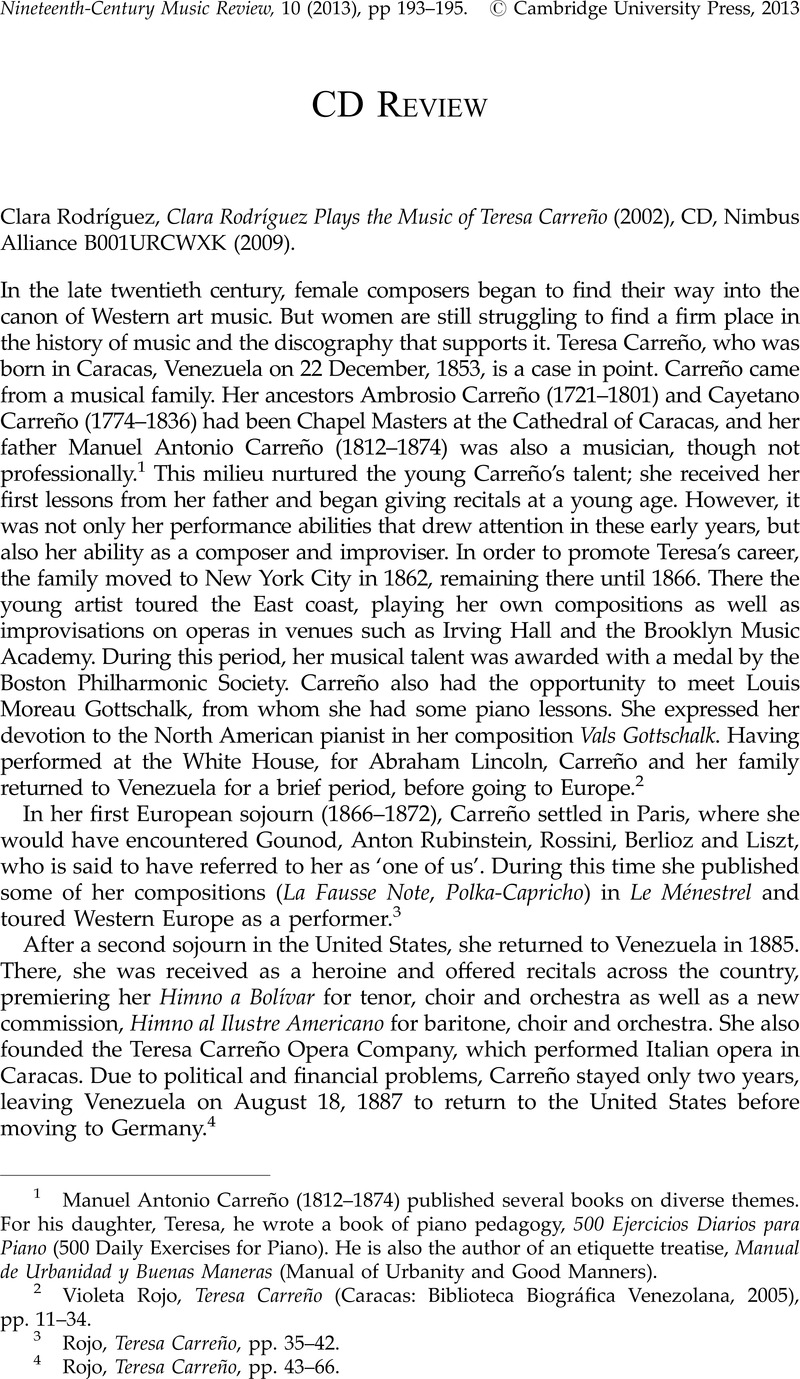No CrossRef data available.
Published online by Cambridge University Press: 17 June 2013

1 Manuel Antonio Carreño (1812–1874) published several books on diverse themes. For his daughter, Teresa, he wrote a book of piano pedagogy, 500 Ejercicios Diarios para Piano (500 Daily Exercises for Piano). He is also the author of an etiquette treatise, Manual de Urbanidad y Buenas Maneras (Manual of Urbanity and Good Manners).
2 Rojo, Violeta, Teresa Carreño (Caracas: Biblioteca Biográfica Venezolana, 2005), pp. 11–34Google Scholar
3 Rojo, Teresa Carreño, pp. 35–42Google Scholar
4 Rojo, Teresa Carreño, pp. 43–66Google Scholar
5 Rojo, Teresa Carreño, pp. 73–101Google Scholar
6 Teresa Carreño, Teresa Carreño, Pianist ‘The Caswell collection, Vol. 6’ (1905), CD, Pierian Record Society, B0006A9GDG (2004)Google Scholar
7 Carreño, Teresa, Possibilities of Tone Color by Artistic Use of Pedals: The Mechanism and Action of the Pedals of the Piano (New York: The John Church Company, 1919)Google Scholar
Sans, Juan Francisco, ‘Teresa Carreño: Una excepcional compositora venezolana del siglo XIX’ Revista de Investigación, 34 n.69 (2010)Google Scholar
8 For the Teresa Carreño Youth Orchestra of Venezuela, visit: http://www.fesnojiv.gob.ve/en/perfil-sjtcv.html
9 Clara Rodríguez is an eminent Venezuelan pianist, who resides in London and teaches at the Junior Department of The Royal College of Music of London. She is regarded as an expert on piano music from Venezuela and Latin America, and has recorded the music of Venezuelan composers Moisés Moleiro (1904–1979) Federico Ruíz (b. 1948) and the Cuban Ernesto Lecuona (1895–1963) as well as a recording entitled Venezuela for the labels Nimbus Records and Meridian. See her homepage: http://www.clararodriguez.com